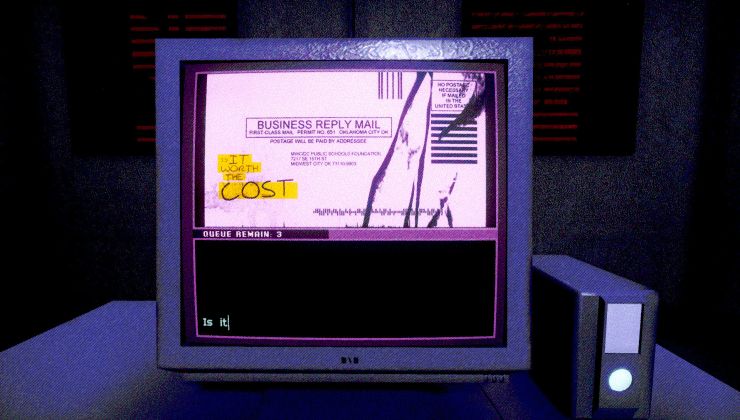For game developers using or looking at using Godot Engine, you may want to check out the Godot 4 DeployToSteamOS addon which gives you a one-click method to test your games on Steam Deck. Be sure to also check out the Godot Engine 2023 showreel.
This is really cool! With the popularity of the Steam Deck, which has been in the Top 10 of the Global Weekly Top Sellers list on Steam every week so far this year, it can make repeat testing a whole lot easier to do from within Godot directly and save game devs some time.
Currently it only supports Godot 4 C# as it "uses external libraries for establishing SSH connections and scanning for devices on your network that aren't accessible through GDScript only." It does also need you to have the SteamOS devkit installed (more info) as it needs you to connect with it at least once for the pairing to work. No special hardware is required, the devkit runs on any normal Steam Deck and the devkit software runs on both Linux and Windows.

Pictured - Godot 4.2 on Linux with the Garage 42 demo.
Posting on X (formerly Twitter), the developer Laura Sofia Heimann showed a quick video of it in action.
The project is on GitHub under the MIT license.
It's affordable, powerful, and easy to deploy software to.
It has many input schemes you can try, is a nice portable size, etc...
I can totally see the Steam Deck being a fantastic tool for games developers.You have NO idea how useful it is. Basically, thanks to the amount of control the Steam Deck offers over its power settings (TDP control, GPU clock speed) plus Gamescope giving you a detailed description of exactly how well the game is running on your system, the Steam Deck basically acts as my main testing machine that can see how well optimised my games are as well as what my bottlenecks are.
It's affordable, powerful, and easy to deploy software to.
It has many input schemes you can try, is a nice portable size, etc...
Plus, it's really easy to deploy to. This add-on simplifies the process but the devkit is built in to the Steam Deck so it's easy to deploy the software from any engine to your Deck within minutes.
I can totally see the Steam Deck being a fantastic tool for games developers.
It's affordable, powerful, and easy to deploy software to.
It has many input schemes you can try, is a nice portable size, etc...
The trick they missed, that I hope they correct with the Deck 2, is having a Kensington slot. Load up your game/demo on some Decks and let people play.
I can totally see the Steam Deck being a fantastic tool for games developers.
It's affordable, powerful, and easy to deploy software to.
It has many input schemes you can try, is a nice portable size, etc...
The trick they missed, that I hope they correct with the Deck 2, is having a Kensington slot. Load up your game/demo on some Decks and let people play.
Good idea! There are a few more simple things on my wishlist, such as reversing the SD orientation in its case, to allow charging it while enclosed (could also do that with a secondary port at the bottom). And of course, moonshots such as a second unsoldered M.2 slot to repurpose the motherboard outside of the SD 😁
Last edited by MayeulC on 19 Feb 2024 at 9:12 pm UTC
having a Kensington slotWhat's a Kensington slot?
What's a Kensington slot?https://en.wikipedia.org/wiki/Kensington_Security_Slot
I'm not sure what this does. Increase security during convention booths? Seems like a niche use case.What's a Kensington slot?https://en.wikipedia.org/wiki/Kensington_Security_Slot
I'm not sure what this does.
It allows you to attach a robust part of the chassis of your device by a robust cable or chain to a robust part of your display area to stop people walking off with your device.
Increase security during convention booths? Seems like a niche use case.
With it, the Deck is the game demonstration device: everyone will make sure their game runs the absolute best on the Deck because that's how they're going to show it off to people. Without it, the Deck is just something you play with at home.
With it, the Deck is the game demonstration device: everyone will make sure their game runs the absolute best on the Deck because that's how they're going to show it off to people. Without it, the Deck is just something you play with at home.
I guess it wouldn't be used by many people having a Deck, but this use case probably is a multiplier. People seeing it at booths, being able to try it out... and eventually buying a Steam Deck themselves. Plus obviously, game devs would have to make sure their game plays well with Deck.









 How to set, change and reset your SteamOS / Steam Deck desktop sudo password
How to set, change and reset your SteamOS / Steam Deck desktop sudo password How to set up Decky Loader on Steam Deck / SteamOS for easy plugins
How to set up Decky Loader on Steam Deck / SteamOS for easy plugins
See more from me